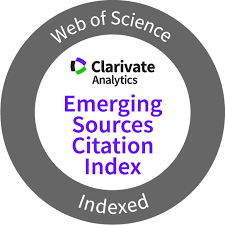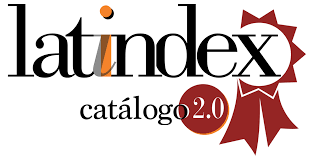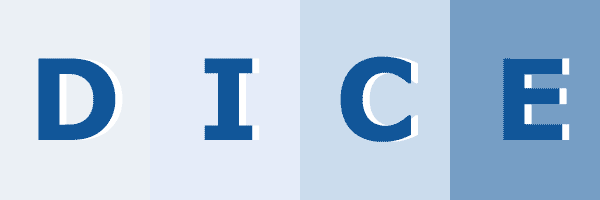Ethos, imagem e reputação organizacional nas redes sociais digitais: o discurso audiovisual da Rede Globo no YouTube / Ethos, image and organizational reputation in digital media: the Rede Globo's audiovisual discourse on YouTube
DOI:
https://doi.org/10.5783/revrrpp.v11i21.677Keywords:
Comunicação organizacional, Reputação, Redes sociais digitais, Ethos, Rede Globo,Abstract
A sociedade, os países, os sujeitos e as organizações atravessam um momento atípico na história por causa da pandemia de Covid-19, a qual coloca em relevo a necessidade de se proporem, estrategicamente, saídas locais, regionais e planetárias para fenômenos que afetam a saúde e a economia. Neste contexto, a comunicação das organizações é impulsionada pela frenética circulação de conteúdos e sentidos disseminados pelas redes sociais digitais, fenômeno que mudou – e continua mudando – os modos de subjetivação, conversação e trocas sociais, já que eleva à infinidade os atores, as partilhas e as conexões. Este ambiente constitui um território favorável para a construção de relacionamentos, mas, também, fomenta conflitos e crises de reputação que podem envolver pessoas, governos, instituições, marcas e organizações. Este cenário reforça a atividade de Relações Públicas como verdadeiro sine qua non, pois discursos e estratégias mal planejados podem desencadear reações negativas quando produzidos em um tempo de acentuada sensibilidade social. À luz destas considerações, o objetivo deste artigo reside em analisar, discursivamente, com base na noção de ethos, duas enunciações audiovisuais da Rede Globo veiculadas em seu canal oficial do Youtube, em julho de 2020, intituladas: “Globo – Qualidade também é respeito” e “Globo – Qualidade também é brasilidade”. Os procedimentos metodológicos utilizados foram a pesquisa bibliográfica,problematizando temas como redes sociais digitais, relações públicas, identidade, imagem, reputação e organizações, e princípios da análise de discurso, discutindo a produção de efeitos de sentido em imagens de si (ethos) que podem produzir dissonância cognitiva. Debruçamo-nos em pesquisas realizadas e disponibilizadas pela consultoria em Relações Públicas Edelman para compreender a confiança dos cidadãos na mídia brasileira, as quais demonstram que mais da metade dos entrevistados desconfiam dos meios de comunicação de massa. Inferimos que questões éticas, de honestidade e de verdade se tornam fulcrais para a reputação em virtude da aceleração dos processos de midiatização, marcados pela interatividade, pela participação e pelos embates, lançando as organizações em um oceano de vulnerabilidade caracterizado por elogios, boicotes e cancelamentos que colocam como imperativo a gestão estratégica das relações públicas diante das reverberações e conversações negativas de imagem e reputação de organizações nas redes sociais da Internet.
Palavras-chave: Comunicação organizacional, Reputação, Redes sociais digitais, Ethos, Rede Globo.
Abstract
Society, countries, chaps and organizations are going through an atypical moment in history because of the Covid-19 pandemic, which highlights the need to strategically propose local, regional and planetary solutions for phenomena that affect the health and the economy. In this context, the communication of organizations is driven by the frenetic circulation of content and meanings disseminated by digital media, a phenomenon that has changed - and continues to change - the modes of subjectivation, conversation and sociability, as it elevates the actors, the shares to infinity and the connections. This challenging environment constitutes a favorable territory for building relationships, but also foments of conflicts and reputational crises that may involve people, governments, institutions, brands, organizations, etc. Hence, the current scenario shows that the production of information and the building of relationships through digital media reflect on identity, image and reputation. We highlight the existence of a fine line that can become unfavorable through controversial and contradictory communicative actions, given that the contents are disseminated and subject to all kinds of evaluation by the “inhabitants” of the online ecosystem. The organizational performance must align ethical, transparent and coherent principles with corporate and public objectives, as well as paying attention to the rapid changes on the contemporary society. The monitoring of communication becomes a fundamental tool so that, given the fast connections made possible by the development of digital technologies and media, organizations can prevent and manage possible crises and conflicts. These theoretical-pragmatic scenario reinforce the nature of the Public Relations activity as a true sine qua non, as poorly planned speeches and strategies can trigger negative reactions when produced in a time of heightened social sensitivity. In conclusion, the scenario also points to challenges related to the surveillance of citizens, which cover issues related to security, integrity and privacy. Thus, the objective of this article is to analyze, discursively, based on the notion of ethos, two audiovisual utterances from Rede Globo de Televisão on its official Youtube channel, in July 2020, entitled: “Globo – Qualidade também é respeito” and “Globo – Qualidade também é brasilidade”. The methodological procedures correspond to bibliographic research, discussing themes such as digital media, public relations, identity, image, reputation and organizations, and principles of discourse analysis, discussing the production of meaning effects in images of the self (ethos) that can produce cognitive dissonance in the audience. We investigated surveys carried out and made available by the Public Relations consultancy entitled Edelman to understand the trust of citizens in the Brazilian media, which show that more than half of the interviewees distrust the mass media. We infer that ethical, honesty and truth issues become central to reputation due to the acceleration of mediatization processes, marked by interactivity, participation, and clashes, launching organizations into an ocean of vulnerability characterized by praise, boycotts and cancellations who place the strategic management of public relations as imperative in the face of reverberations and negative conversations about the image and reputation of organizations on the digital media.
Keywords: Organization Communication, Reputation, Digital Media, Ethos, Rede Globo.
Downloads
References
AMOSSY, R. (2005). Da noção retórica de ethos à análise do discurso. En AMOSSY, R. (Org.). Imagens de si no discurso: a construção do ethos. São Paulo: Contexto.
BARBEIRO, H. (2010). Crise e comunicação corporativa. São Paulo: Globo.
BARICHELLO, E.M. da R, et al. (2013). Estendendo as práticas de relações públicas sob a perspectiva teórica da ecologia das mídias. En Rublescki, A. y Barichello, E. M. da R. (Orgs). Ecologia da Mídia. Santa Maria: FACOS.
BAUMAN, Z. (2013). Vigilância líquida. Rio de Janeiro: Zahar.
BUENO, W. da C. (2014). Comunicação empresarial: da rádio peão às mídias sociais. São Bernardo do Campo: Metodista.
CASTELLS, M. (2013). Redes de indignação e esperança: movimentos sociais na era da internet. Rio de Janeiro: Zahar.
CORRÊA, E.S. (2016). A comunicação na sociedade digitalizada: desafios para as organizações contemporâneas. En: Kunsch, M. M. K. (Org.) Comunicação Organizacional Estratégica: aportes conceituais e aplicados. São Paulo: Summus.
HAN, B.C. (2017). Sociedade da transparência. Petrópolis: Editora Vozes.
DI FELICE, M. (2012). Auréola digital: a crise dos pontos de vista centrais e o fim do direito exclusivo da edição das informações. En Oliveira, I. de L. y Marchiori, M. Redes sociais, comunicação e organizações. São Caetano do Sul: Difusão.
DI FELICE, M. (2017). Net-ativismo: da ação social para o ato conectivo. São Paulo: Paulus.
EDELMAN TRUST BAROMETER (Março 22, 2018). EDELMAN TRUST BAROMETER 2018. Recuperado el 09 de noviembre de 2020 de https://bit.ly/3qqocxf
EDELMAN TRUST BAROMETER (Março 28, 2019). EDELMAN TRUST BAROMETER 2019. Recuperado el 09 de noviembre de 2020, de: https://www.edelman.com.br/estudos/trust-barometer-2019.
EDELMAN TRUST BAROMETER (Abril 06, 2020). EDELMAN TRUST BAROMETER 2020. Recuperado el 09 de noviembre de 2020, de: https://www.edelman.com.br/estudos/edelman-trust-barometer-2020.
FRAGOSO, S., RECUERO, R. y AMARAL, A. (2011). Métodos de pesquisa para Internet. Porto Alegre: Sulina.
GLOBO (2020a, Julho 15). Globo: qualidade também é respeito. [Youtube Globo]. Recuperado el 09 de noviembre de 2020 (a), de https://www.youtube.com/watch?v=qMOeKYDlTpg
GLOBO (2020b, Julho 21). Globo: qualidade também é respeito. [Youtube Globo]. Recuperado el 09 de noviembre de 2020 (b), de: https://www.youtube.com/watch?v=ujN29MXF2wY
JENKINS, H. (2009). Cultura da Convergência. São Paulo: Aleph.
KUNSCH, M.M.K. (2003). Planejamento de relações públicas na comunicação integrada. 2. ed. São Paulo: Summus.
LATTIMORE, D. et al. (2012). Relações públicas: profissão e prática. 3 ed. Porto Alegre: AMGH.
MAINGUENEAU, D. (2004). Análise de textos de comunicação. São Paulo: Cortez.
MAINGUENEAU, D. (2008). Cenas da enunciação. São Paulo: Parábola.
MINISTÉRIO DA SAÚDE (2021, Junho 11). Covid-19 - Painel Coronavírus. Recuperado el 11 de junio de 2021, de https://covid.saude.gov.br/
PÊCHEUX, M. (2006). O discurso: estrutura ou acontecimento. Campinas: Pontes.
RECUERO, R. (2014). Redes sociais na Internet. Porto Alegre: Sulina.
RIES, A. y RIES, L. (2002). A queda da propaganda: da mídia paga à mídia espontânea. Rio de Janeiro: Campus.
RÜDIGER, F. (2011). As teorias da cibercultura – perspectivas, questões e autores. Porto Alegre: Sulina.
SANTAELLA, L. (2015). A cultura digital na berlinda. En Lopes, M. I V. de y Kunsch, M. K. Comunicação, cultura e mídias sociais. São Paulo: ECA-USP.
SANTAELLA, L. (2010). A ecologia pluralista da comunicação: conectividade, mobilidade ubiquidade. São Paulo: Paulus.
SILVA, M.P., TRINDADE, A.C. y ROSSI, J.C. (2017). Desafios para a atividade de relações públicas no mundo contemporâneo: pesquisa de opinião com profissionais do Estado de São Paulo. Revista Internacional de Relaciones Públicas, 7(14), 103-124. Recuperado el 09 de noviembre de 2020, de http://dx.doi.org/10.5783/RIRP-14-2017-07-103-124
SIMÕES, R.P. (2006). Informação, inteligência e utopia: contribuições à teoria de relações públicas. São Paulo: Summus.
SIMÕES, R.P. (2001). Relações públicas e micropolítica. São Paulo: Summus.
STRATE, L, BRAGA, A., LEVINSON, P. (2019). Introdução à Ecologia das Mídias. Rio de Janeiro: Ed PUC-Rio; [São Paulo]: Edições Loyola.
Downloads
Published
How to Cite
Issue
Section
License
Authors publishing in this journal agree to the following terms:
a. Authors retain copyright and grant the journal the right to be the first publication of the work as licensed under a Creative Commons Attribution License that allows others to share the work with an acknowledgement of authorship of the work and initial publication in this journal.
b. Authors may separately enter into additional arrangements for non-exclusive distribution of the version of the work published in the journal (e.g., placing it in an institutional repository or publishing it in a book), with an acknowledgement of initial publication in this journal.
c. Authors are allowed and encouraged to disseminate their work electronically (e.g. in institutional repositories or on their own website) before and during the submission process, as it can lead to productive exchanges, as well as earlier and higher citation of published work (see The Effect of Open Access).




